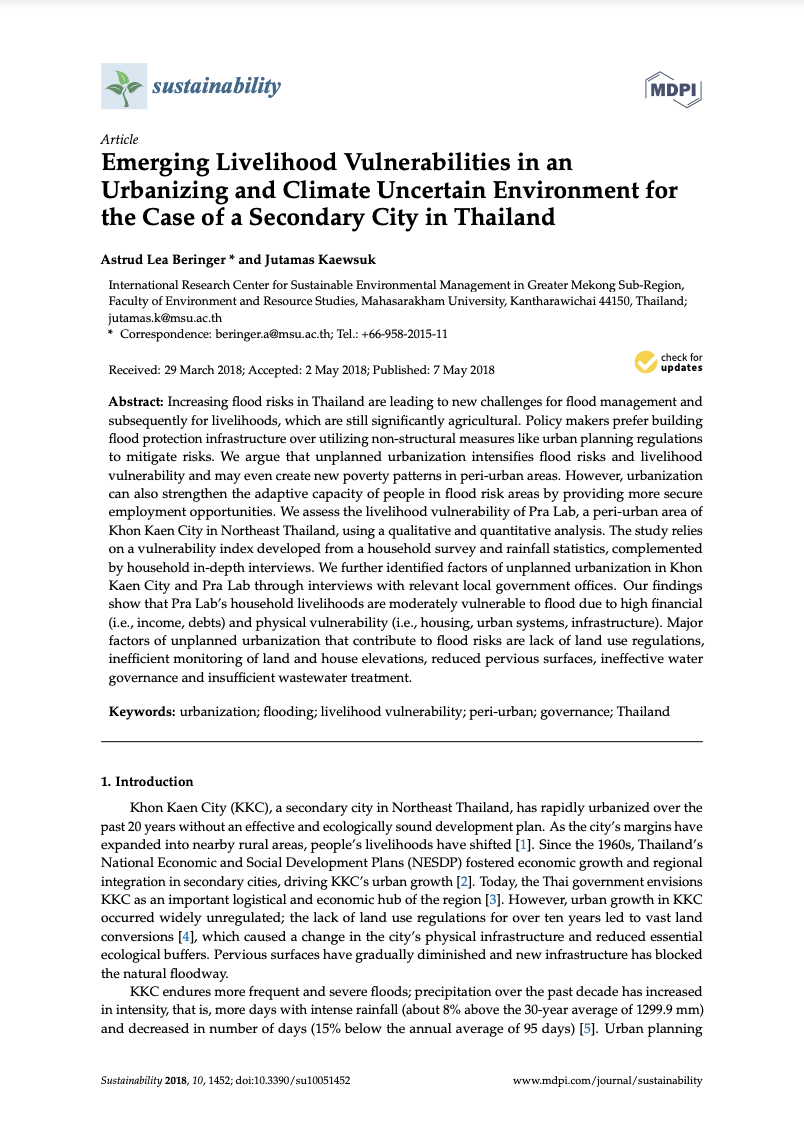Resource information
ncreasing flood risks in Thailand are leading to new challenges for flood management and subsequently for livelihoods, which are still significantly agricultural. Policy makers prefer building flood protection infrastructure over utilizing non-structural measures like urban planning regulations to mitigate risks. We argue that unplanned urbanization intensifies flood risks and livelihood vulnerability and may even create new poverty patterns in peri-urban areas. However, urbanization can also strengthen the adaptive capacity of people in flood risk areas by providing more secure employment opportunities. We assess the livelihood vulnerability of Pra Lab, a peri-urban area of Khon Kaen City in Northeast Thailand, using a qualitative and quantitative analysis. The study relies on a vulnerability index developed from a household survey and rainfall statistics, complemented by household in-depth interviews. We further identified factors of unplanned urbanization in Khon Kaen City and Pra Lab through interviews with relevant local government offices. Our findings show that Pra Lab’s household livelihoods are moderately vulnerable to flood due to high financial (i.e., income, debts) and physical vulnerability (i.e., housing, urban systems, infrastructure). Major factors of unplanned urbanization that contribute to flood risks are lack of land use regulations, inefficient monitoring of land and house elevations, reduced pervious surfaces, ineffective water governance and insufficient wastewater treatment.

